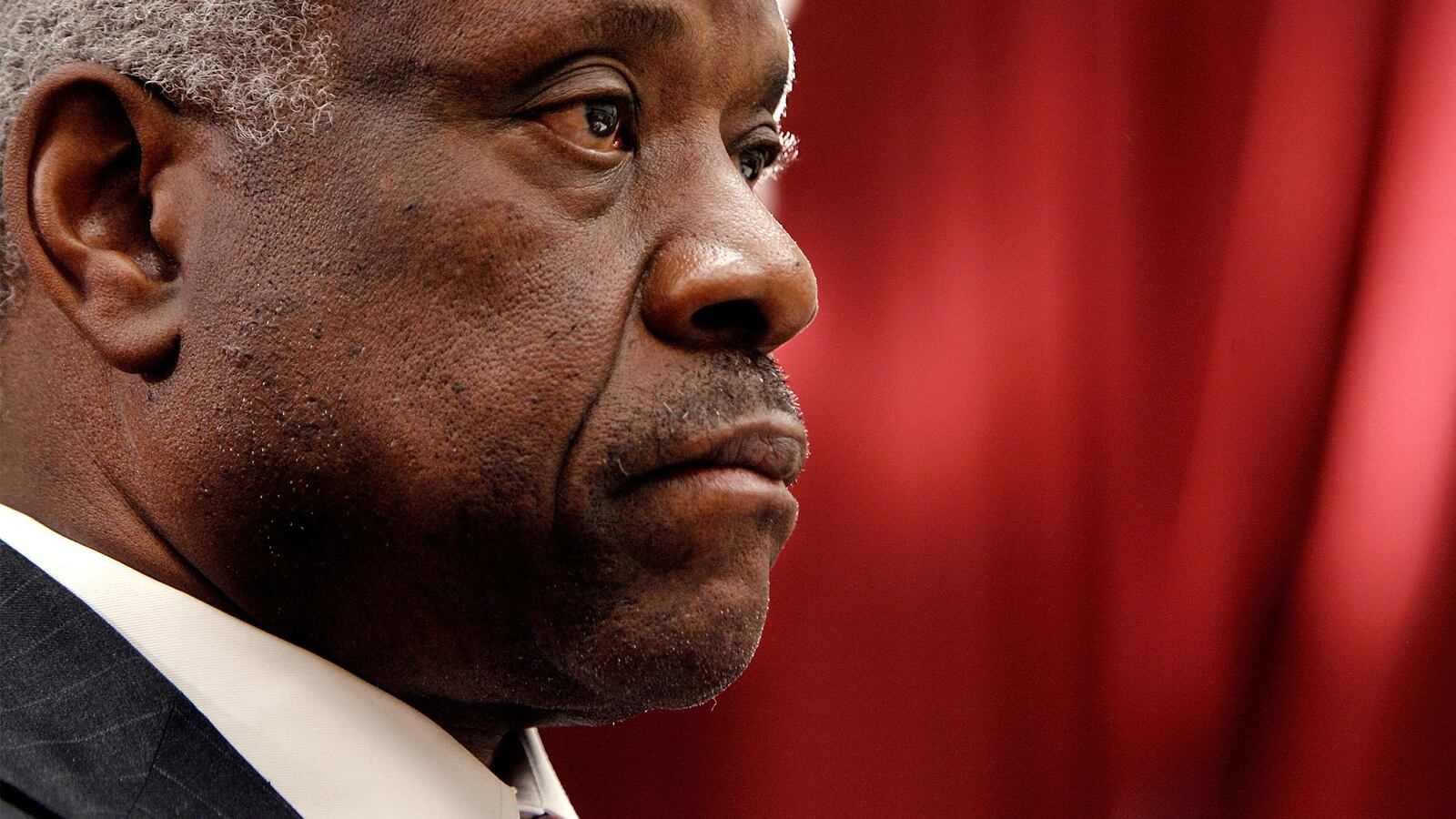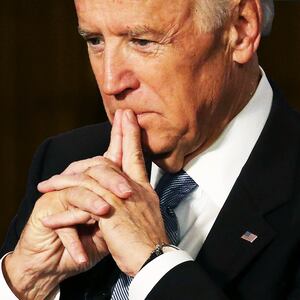It’s been nearly three decades, but former Vice President Joe Biden still has not figured out quite how to apologize for his handling of Supreme Court Justice Clarence Thomas’ confirmation hearings—and one woman who was prevented from testifying in those hearings is growing weary of waiting.
“As human beings, we all make mistakes,” Sukari Hardnett, who in 1991 submitted a sworn affidavit to the Senate Judiciary Committee testifying that she had been subject to Thomas’ “unpleasant” attention, told The Daily Beast. “But what’s critical is that we learn from those mistakes.”
Asked if she felt that Biden had learned from his own mistakes, Hardnett sighed.
“All I can say is that I hope so. I hope so,” Hardnett said. “We will never be able to revisit that opportunity.”
In 1991, Hardnett was prepared to testify in support of Professor Anita Hill, who like Hardnett was a former employee of Thomas’ during his time as chair of the U.S. Equal Employment Opportunity Commission. Hill, whose tenure at the EEOC did not overlap with Hardnett’s, had accused Thomas of sexual harassment, including detailing “acts he had seen in pornographic films,” and graphically telling Hill about “his own sexual prowess.”
Biden, then chair of the Senate Judiciary Committee, oversaw the confirmation hearings, which were marked by befuddlement over the issue of workplace sexual misconduct by the all-male committee members, as well as sexist attacks against Hill from Republican senators who accused her of “flat-out perjury” and suggested that her testimony was the “product of fantasy” derived from the film The Exorcist.
Hardnett, of course, wasn’t there. Biden had blocked her and Angela Wright, another woman who accused Thomas of sexual harassment, from testifying before the committee in support of Hill. Biden’s decision was a symptom of the time, Hardnett allowed, but wrong nonetheless.
“I do believe that the country, as a whole, could not really deal with the issue of sexual harassment realistically,” Hardnett told The Daily Beast. “Since that time, we as a nation have become—well, most of us—have become much more aware of just how damaging that type of behavior is to our population, to our nation.”
Biden, who is considering another run for the White House, has been the target of mounting criticism for his role in Thomas’ confirmation battle in recent months, including his failure to protect Hill from Republican interrogations into her own sex life on national television, as well as his refusal to invite Hardnett and Wright to testify before the committee.
Speaking at the Biden Courage Awards on Tuesday night, Biden said that Hill “showed the courage of a lifetime talking about her experience being harassed by Clarence Thomas, but she paid a terrible price.”
Hill, Biden continued, “was abused in the hearing. She was taken advantage of. Her reputation was attacked. I wish I could have done something… To this day I regret I couldn’t come up with a way to get her the kind of hearing she deserved.”
Biden, Hardnett told The Daily Beast, most certainly could have done something.
“I think that things could have been done by him,” Hardnett said. “The hearings into allegations of sexual harassment against Clarence Thomas were compromised, I think, for a number of reasons.”
Spokespersons for Biden and Thomas did not respond to a request for comment.
In the affidavit submitted to the committee, which received so little notice that even some members of the U.S. Senate were unaware that it had been entered into the record, Hardnett stated that while she did not consider herself a victim of sexual harassment by Thomas, the EEOC under his reign was highly sexualized, particularly for young black women. Thomas’ denials under oath that this was the case, Hardnett said, were a lie.
“To maintain that Clarence Thomas’ office was untainted by any sexuality and permeated by loving, nurturing, but asexual concern is simply a lie,” Hardnett wrote. “Women know when there are sexual dimensions to the attention they are receiving. And there was never any doubt about that dimension in Clarence Thomas’ office. I know it. Clarence Thomas knows it. And I know he knows it because he discussed some of the females in his office with me.”
When Hardnett insisted on a transfer from Thomas’ office, she wrote, she “paid the price as an outcast” for the remainder of her time at the EEOC, a fate that she said befell others in the office.
“You were barred from entering his office and treated as an outcast or, worse, a leper with whom contact was taboo,” Hardnett wrote.
Thomas denied any sexual misconduct, and famously dismissed Hill’s allegations as “a high-tech lynching.”
“Because I worked directly for Clarence Thomas, I had hoped that I could verify and support and affirm what Anita Hill was saying,” Hardnett told The Daily Beast. Unfortunately, due to Biden’s refusal to allow additional witnesses to speak before the committee, “there was really no testimony to that effect.”
In the years since her thwarted attempt at testifying in support of Hill, Hardnett has taken solace in the role of the hearings in expanding understanding of workplace sexual harassment, which she called “a strong precursor to the #MeToo movement.”
Even Biden, Hardnett said, appears to have learned from the Thomas confirmation battle.
“I think with the last confirmation” of now-Justice Brett Kavanaugh, Hardnett said, “former Vice President Biden was very clear on his position, and did not support that nomination. I think that very well might be a direct result of what he experienced during Professor Hill’s hearing.”
While Biden’s expression of remorse toward Hill—who told Elle that, to this day, she jokes that unsolicited telephone calls might be Biden calling to apologize—leaves more to be desired, Hardnett said. But Biden’s movement towards accepting responsibility speaks better of him than the Oval Office’s current occupant, she said.
“When we look at the current political situation, that we’re in with this president who accepts no responsibility... it’s refreshing to see that there are some people who admit that they’ve made a mistake,” Hardnett said. “People who, if given the ability to correct their mistakes, they would.”







